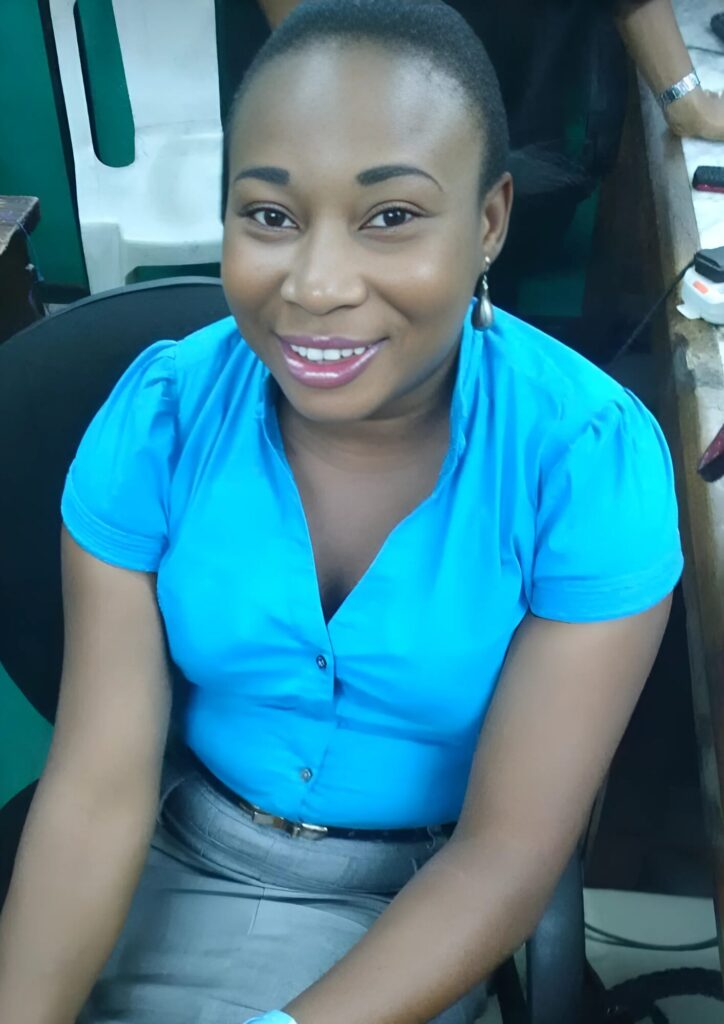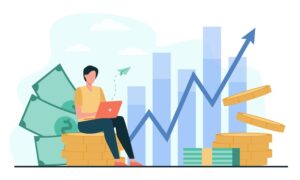In an era marked by financial upheaval, algorithmic bias, and rising regulatory pressure, a thought leader is transforming the global conversation on risk, data, and ethics. Her name is Hope Ehiaghe Omokhoa, and her work is quickly becoming a touchstone for ethical financial intelligence in a world desperate for clarity and conscience.
Hope emerged prominently in 2023 with the publication of her peer-reviewed paper, The Role of Data Analytics in Strengthening Financial Risk Assessment and Strategic Decision-Making. Co-authored with fellow experts in the field and published in IRE Journals, the paper broke new ground on how financial institutions can combine AI, blockchain, and predictive analytics not just for speed or scale but for equity. The publication was recognized in December with IRE Journals’ Best Paper Award, cementing its place as a defining scholarly contribution in financial ethics and analytics.
But the acclaim the paper received cannot be separated from Hope’s own voice, the clarity of her vision, the urgency of her message, and the courage with which she confronts the darker undercurrents of financial innovation. “We cannot allow automation to widen the inequality gap,” she told a packed fintech town hall in Abuja in October. “Technology must be an instrument of dignity, not exclusion.” Her words were not just applause lines; they triggered serious reflection in a sector long accused of building systems that advantage the few at the expense of the many.
Hope’s framework gained rapid traction across both public and private sectors. By December 2023, it had been cited in over thirty scholarly and professional documents, including internal compliance models for banks and risk strategy memos for West African regulators. Across startup hubs in Nairobi, Abuja, and London, the paper is being studied not simply as academic theory but as a working template for what ethical fintech should look like.
At the core of Hope’s argument is a simple but powerful premise: data is not neutral. In a time when financial institutions are grappling with rising fraud, exclusion of the underserved, and intensifying oversight, she insists that the key to meaningful transformation lies not in blind automation but in intentional design. “You can’t fix finance with blind code,” she warned during the Lagos Fintech Leadership Forum in July. “You need intentional governance, fairness audits, and inclusive design.”

That event, co-hosted by a network of Nigerian banking startups and global investment firms, reached over two thousand live participants and trended in local fintech news. During her keynote, Hope cautioned that predictive models often entrench the very biases they claim to disrupt. “AI doesn’t hallucinate inequality, it replicates what we feed it,” she said. Within weeks, several firms in attendance launched internal audits of their AI risk models, directly crediting her remarks.
In Port Harcourt the following month, Hope addressed the 2023 Private Compliance and Risk Roundtable, a closed-door gathering of fintech lawyers, auditors, and cybersecurity leaders. Her presentation, titled Risk Without Rights: Reframing Compliance for Digital Inclusion, drew over five hundred participants. There, she argued that the purpose of compliance must be reoriented around human dignity. “A system that only detects fraud but doesn’t understand vulnerability will fail the people who need it most,” she said, adding that digital surveillance without ethical intelligence creates systems that punish the poor while protecting the powerful.
Her comments were picked up in Nigeria’s Private Finance Week, which declared that Hope “has introduced a new standard of moral clarity to regulatory discourse.” In the same month, a popular Lagos business publication noted that her ethical lens had begun to influence how risk management courses were being updated in three local universities.
What distinguishes Hope’s work is that she does not merely describe problems. She pilots solutions. Over the course of 2023, she consulted on AI-powered credit scoring systems that incorporated non-traditional data such as mobile money use, rent payment histories, and even energy consumption to widen access to credit. These tools, tested in pilot programs across Lagos, showed a 22 percent improvement in approval rates for low-income applicants when fairness reviews were added to the algorithms. In a September webinar hosted by the Lagos Business Insights Collective, she explained the outcome with characteristic humility. “The math didn’t change. What changed was who the math finally saw.”
Her approach to risk is equally forward-looking. In 2023, the Association of Certified Fraud Examiners reported that over 4.7 trillion dollars was lost globally to financial fraud, representing nearly five percent of all corporate revenue. At the same time, compliance penalties exceeded 40 billion dollars, largely due to lapses in digital oversight. The Bank of England, in its third-quarter stress report, added that climate-related instability now poses system-wide threats to global finance. Hope’s work contends that these risks cannot be tackled by outdated compliance tools or siloed departments. “We need data that thinks beyond itself,” she said during a June webinar on explainable AI models. “Transparency isn’t just a technical feature, it’s a moral one. It tells us who’s being left out and gives us a chance to do something about it.”
Throughout 2023, she was a featured speaker at multiple finance webinars and town halls across Nigeria. From Ibadan to Enugu, her message was clear. AI in finance must serve access, not arbitrage. In October, during a strategic session with Lagos-based financial regulators and data leaders, she presented her modular blueprint for ethical analytics. “Not every institution needs a billion-dollar AI program,” she noted. “They need tools that can adapt, explain, and include.”
That blueprint is now being evaluated for implementation across several credit unions and savings cooperatives in Nigeria. Meanwhile, two startup accelerators in Ghana and Kenya have integrated her fairness audit methodology into their product vetting process, showing the regional momentum her work is building.
Hope’s clarity of thought was again on full display at the Warri Business Summit in November, where she challenged SME lenders to stop using data as a gatekeeper and start using it as a bridge. Her panel, Access as a Metric, was hailed as one of the most impactful sessions of the summit. “Modern risk scoring too often equates thin data with high risk,” she told the audience. “But sometimes, thin data just means people haven’t been seen yet.”
Her ability to translate complexity into insight and insight into action has made her one of the most cited financial ethics experts in West Africa in 2023. Her work has been featured in end-of-year strategy reviews by finance journals such as Private Capital Review and Finance Digest Nigeria. In December, during a widely viewed press briefing following the IRE award, she emphasized that the stakes extend far beyond algorithms. “This isn’t about technology alone,” she said. “It’s about who gets to participate in the economy. Who gets to be trusted. Who gets to be seen.”
At a virtual summit later that month hosted from Enugu, she distilled her philosophy into a single sentence. “Inclusion is not a slogan. It is a design principle.”
Hope’s upcoming speaking tour for 2024 already includes engagements with financial reform councils in Ibadan, ethics committees in Akure, and a keynote appearance at the annual convention of leading ethics professionals in Lagos. Her frameworks are also scheduled for rollout in multiple cooperative lending institutions, and a growing number of fintech developers have requested her input on regulatory sandbox designs.
The significance of her contributions cannot be measured by awards alone. Her influence is already being felt in design sprints, compliance workflows, policy reviews, and digital architecture prototypes across the region. Her insistence on ethical architecture is no longer just an idea. It is becoming operational policy.
And in every forum where she speaks, Hope returns to the same core challenge. “Who is this system for?” she asks. The question may be simple, but it reveals everything: motive, bias, power, and possibility.
As she said in her final webinar of 2023, “We have the tools. What we need now is the will to use them wisely.”
That is the future Hope Ehiaghe Omokhoa is building. Not just a smarter financial system, but a fairer one. Not just better risk tools, but better reasons for why we use them. In a year full of uncertainty, she offered something rare—the blueprint for a financial ecosystem guided not just by code but by conscience.


































